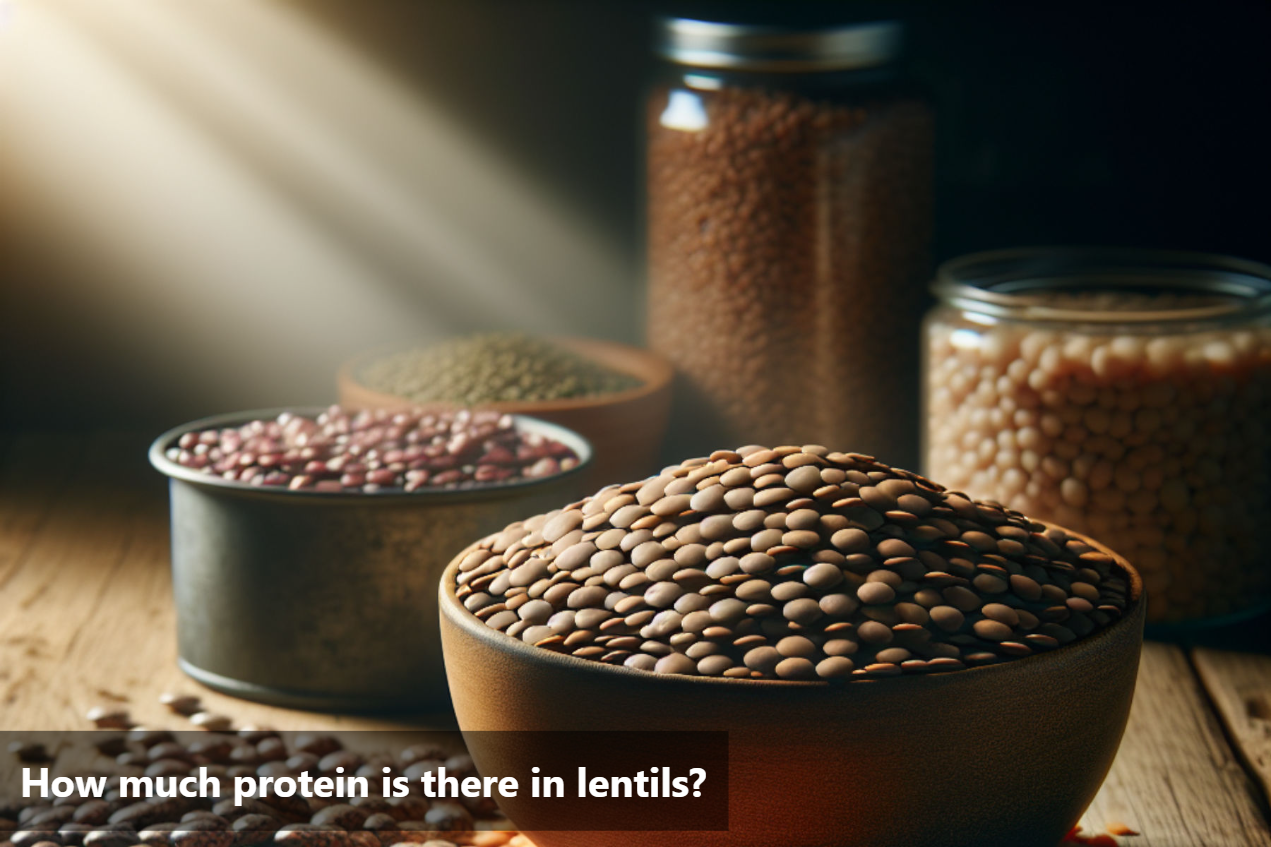
How much protein is there in lentils?
Lentils are a popular legume known for their exceptional nutritional value, particularly for being a rich source of plant-based protein. With their high protein content, lentils have become a staple in vegetarian and vegan diets, offering an alternative protein source to meat and dairy products.
These legumes are not only affordable and versatile in various cuisines but also pack a powerful nutritional punch. Lentils are a great source of essential amino acids, making them a complete protein source for individuals looking to meet their daily protein requirements. The protein in lentils helps in muscle repair and growth, making them an excellent choice for athletes and fitness enthusiasts.
Moreover, lentils are packed with other essential nutrients like fiber, iron, and folate, which are crucial for overall health and well-being. This nutrient-dense profile makes lentils a favorable choice for individuals aiming to improve their diet and boost their protein intake naturally.

Nutritional Profile of Lentils
1 cup (198 grams) of cooked lentils generally provides the following:
Calories |
230 |
Carbs |
39.9 grams |
Protein |
17.9 grams |
Fat |
0.8 grams |
Fiber |
15.6 grams |
Thiamine |
28% of the DV |
Niacin |
13% of the DV |
Vitamin B6 |
21% of the DV |
Folate |
90% of the DV |
Pantothenic acid |
25% of the DV |
Iron |
37% of the DV |
Magnesium |
17% of the DV |
Phosphorus |
28% of the DV |
Potassium |
16% of the DV |
Zinc |
23% of the DV |
Copper |
55% of the DV |
Manganese |
43% of the DV |
Types of Lentils High in Protein
Brown. These are the most widely eaten type. They have an earthy flavor, hold their shape well during cooking, and are great in stews and soups.
Puy. These come from the French region Le Puy. They’re similar in color but about one-third of the size of green lentils and have a peppery taste.
Green. These can vary in size and are usually a less expensive substitute in recipes that call for Puy lentils.
Yellow and red. These lentils are split and cook quickly. They’re great for making dal and have a somewhat sweet and nutty flavor.
Beluga. These are tiny black lentils that look almost like caviar. They make a great base for warm salads.
Make Lentils at home
Rinse Lentils: Start by rinsing the lentils under cold water and picking out any debris or stones.
Sauté Vegetables: In a large pot, heat the olive oil over medium heat. Add the diced onion, carrots, and celery. Cook, stirring occasionally, until the vegetables are softened, about 5-7 minutes.
Add Garlic and Spices: Add the minced garlic, ground cumin, ground coriander, and smoked paprika (if using) to the pot. Cook for another minute until the garlic is fragrant and the spices are toasted.
Add Lentils and Broth: Add the rinsed lentils to the pot, then pour in the vegetable or chicken broth (or water). Bring the mixture to a boil, then reduce the heat to low and let it simmer, partially covered, for about 20-25 minutes or until the lentils are tender.
Season and Serve: Season the soup with salt and pepper to taste. If desired, squeeze some fresh lemon juice into the soup for brightness. Garnish with chopped parsley or cilantro before serving.
Enjoy: Ladle the lentil soup into bowls and serve hot. You can enjoy it as is or with a side of crusty bread for a satisfying meal.
Benefits of Consuming Lentils for Protein Intake
High Protein Content: Lentils are an excellent source of plant-based protein, with around 18 grams of protein per cooked cup (approximately 198 grams).
Heart Health: Lentils are low in fat and high in fiber, which can help lower cholesterol levels and reduce the risk of heart disease.
Weight Management: Lentils are filling due to their high fiber and protein content, which can help control appetite and aid in weight management.
Blood Sugar Control: The soluble fiber in lentils slows down the absorption of sugar into the bloodstream, helping to stabilize blood sugar levels and reduce the risk of diabetes.
Digestive Health: The fiber in lentils promotes digestive health by preventing constipation and supporting a healthy gut microbiome.

Discover the Protein Content in Lentils
It is evident that lentils are indeed a powerhouse of nutrition, particularly valued for their high protein content.
When looking to boost your protein intake, lentils stand out as a natural and versatile option. Their rich macronutrient profile not only includes a substantial amount of protein but also offers a variety of essential vitamins and minerals that contribute to overall health and well-being.
In essence, the benefits of consuming lentils for protein intake extend beyond mere nutrition; they represent a sustainable and delicious approach to supporting your dietary needs. By adding lentils to your culinary repertoire, you can enjoy a balanced diet while reaping the rewards of this protein-packed superfood.
This Blog post is an initiative by Lo! Foods, to provide accurate and Nutritionist / Doctor approved information related to Health. Lo! Foods is India's leading brand for Everyday Functional Foods. Foods designed for specific Health conditions or Needs. Lo! Foods also runs India's largest range of Low Carb Healthy Cloud Kitchens, under the brand names of Lo!, ProteinChef, ATH (All Things Healthy) and DiabeSmart.









Leave a comment
Your email address will not be published.